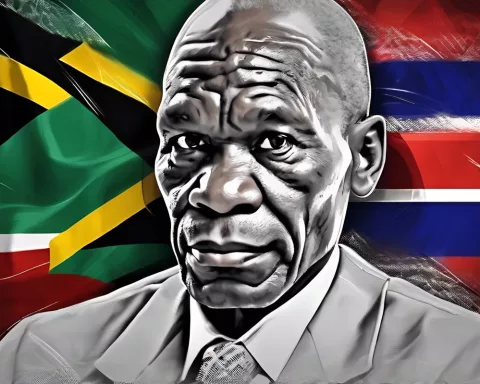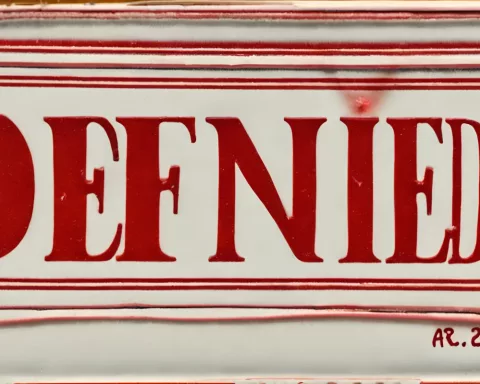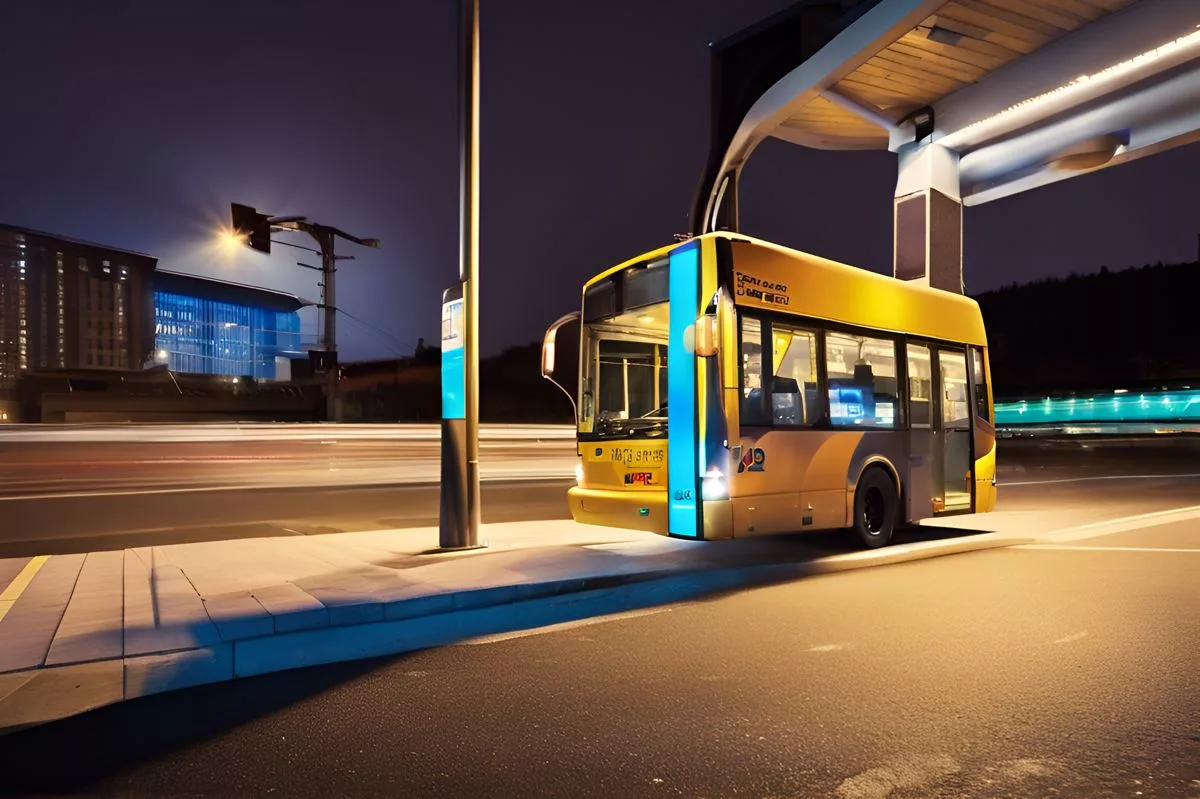“The Journey from Offense to Verdict: A South African Justice Tale” is a gripping narrative that follows the trial of Sakhiwo Khala and Siyabulela Mcelu, who faced severe charges in the Khayelitsha Regional Court in South Africa. The article explores the legal implications and strict measures taken by the court and delves into the incident that triggered this extensive chain of events. The story highlights the complexities of the South African justice system, the relentless pursuit of justice, and the ultimate victory of law and order in the face of crime.
What is “The Journey from Offense to Verdict: A South African Justice Tale”?
“The Journey from Offense to Verdict: A South African Justice Tale” is a narrative that follows the trial of two men, Sakhiwo Khala and Siyabulela Mcelu, who faced severe charges including attempted robbery, attempted murder, possession of unlawful firearms, and murder in the Khayelitsha Regional Court in South Africa. The article explores the legal implications and strict measures taken by the court, as well as the incident that triggered this extensive chain of events.
The narrative, “The Journey from Offense to Verdict: A South African Justice Tale”, springs from the core of Western Cape, South Africa, under the watchful eye of the Khayelitsha Regional Court. A palpable buzz of expectation enveloped the courtroom on February 19, 2024, when two men, Sakhiwo Khala, 42, and Siyabulela Mcelu, 37, faced their trial. The severe charges against them included attempted robbery under aggravated circumstances, two counts of attempted murder, possession of unlawful firearms, illegal possession of ammunition, and a horrendous count of murder.
The Trials and Tribulations
The pair had already been pronounced guilty on all counts on November 8, 2023, three months prior. Now, they were standing in front of the court, their fate hanging in the balance. Their transgressions, especially the attempted robbery, brought back memories of the infamous Cash-In-Transit heists that have tainted South Africa’s crime history.
As the court proceedings commenced, the sentences began to roll out incessantly. Khala and Mcelu maintained their composure as the judge declared twelve years for the attempted robbery, six years for each count of attempted murder, twenty-two years for murder, twelve years for the possession of illegal firearms, and two years for illegal possession of ammunition. The total sentence amounted to sixty years each. Nevertheless, the court ruled that all sentences, barring the murder charge, would run concurrently, meaning they would actually serve twenty-two years in prison.
Strict Measures and Legal Implications
A significant move was made by the court, invoking Section 103 (1) and (2) of the Firearms Control Act, Act 60 of 2000. Both men were declared unfit to possess a firearm. This Act is a vital part of South African law, created to monitor access to firearms and ammunition in an attempt to mitigate the potential for firearm-related crimes.
The Incident and Its Aftermath
The narrative takes us back to the incident that triggered this extensive chain of events on a fateful day in 2015. An SBV cash vehicle arrived at Nolungile Railway Station in Khayelitsha. The crew members, unaware of the impending danger, were collecting money when they were ambushed by three unidentified suspects. Gunfire shattered the quiet, and in the ensuing chaos, one suspect was killed, and two others, injured, managed to flee on foot. The escaped suspects, later identified as Khala and Mcelu, were ironically charged with the murder of their accomplice.
Heroes Emerge and Justice Prevails
Despite their injuries, the crew members survived this terrifying incident. Their bravery and resilience serve as a reminder of the countless unsung heroes who face threats in their line of work. Their ordeal led to a successful manhunt and the eventual arrest of Khala and Mcelu.
The narrative wraps up with the response of Major General Mathipa Makgato, the Provincial Head of the Directorate for Priority Crime Investigation, who stated the timeless truth: “Crime does not pay.” His sentiment reverberates throughout the law enforcement community, reminding us that justice, although it may be delayed, is never denied. His statement underscores the tireless dedication of legal forces committed to bringing criminals to justice, a fundamental aspect in the battle against crime.
The story of Khala and Mcelu, from their offenses to their verdict, offers a glimpse into the complexities of the South African justice system. It underscores the precarious balance between crime and law enforcement, the relentless pursuit of justice, and the ultimate victory of law and order in the face of crime.
What is the article about?
“The Journey from Offense to Verdict: A South African Justice Tale” is a narrative that follows the trial of two men, Sakhiwo Khala and Siyabulela Mcelu, who faced severe charges including attempted robbery, attempted murder, possession of unlawful firearms, and murder in the Khayelitsha Regional Court in South Africa. The article explores the legal implications and strict measures taken by the court, as well as the incident that triggered this extensive chain of events.
What were the charges against Sakhiwo Khala and Siyabulela Mcelu?
The severe charges against them included attempted robbery under aggravated circumstances, two counts of attempted murder, possession of unlawful firearms, illegal possession of ammunition, and a horrendous count of murder.
What was the sentence given to Sakhiwo Khala and Siyabulela Mcelu?
The total sentence amounted to sixty years each, but all sentences, barring the murder charge, would run concurrently, meaning they would actually serve twenty-two years in prison.
What is Section 103 (1) and (2) of the Firearms Control Act, Act 60 of 2000?
Section 103 (1) and (2) of the Firearms Control Act, Act 60 of 2000, is a vital part of South African law, created to monitor access to firearms and ammunition in an attempt to mitigate the potential for firearm-related crimes. The court invoked this section, declaring both men unfit to possess a firearm.
What was the incident that triggered this extensive chain of events?
On a fateful day in 2015, an SBV cash vehicle arrived at Nolungile Railway Station in Khayelitsha. The crew members, unaware of the impending danger, were collecting money when they were ambushed by three unidentified suspects. Gunfire shattered the quiet, and in the ensuing chaos, one suspect was killed, and two others, injured, managed to flee on foot. The escaped suspects, later identified as Khala and Mcelu, were ironically charged with the murder of their accomplice.
Who was Major General Mathipa Makgato, and what did he say?
Major General Mathipa Makgato was the Provincial Head of the Directorate for Priority Crime Investigation. He stated the timeless truth: “Crime does not pay.” His sentiment reverberates throughout the law enforcement community, reminding us that justice, although it may be delayed, is never denied.












